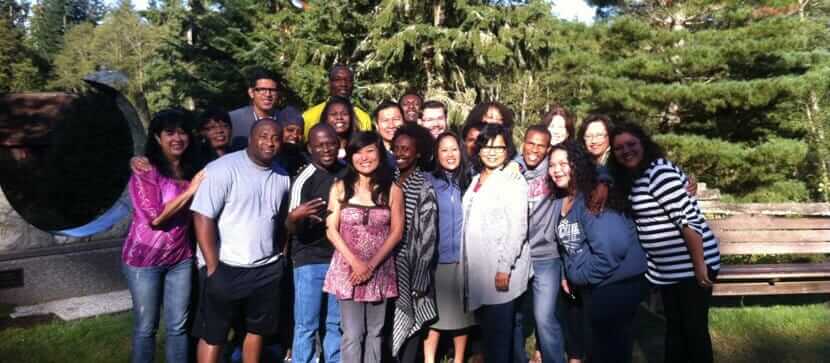As Sayumi Irey completed her 2012 dissertation on how Asian American women assume leadership positions in Community Colleges, she came to an exciting realization—one that led her to think her dissertation didn’t belong in someone’s database, but rather in a real-world program to nurture minority leaders in academia.
“My findings had a huge impact on the people I interviewed,” Irey said. “Leadership is holistic and relational, and the most important thing about leadership is infusing leadership identity within [one’s self]. Power comes from within.” Irey said that the relationships she built during interviews for her dissertation really made a difference.
The power of this finding to impact lives led Irey to a new mission of her own. Backed by research which shows the importance of role models in determining student success, and having seen firsthand the shortage of minority role models in academic leadership, Irey worked with colleagues and administrators to launch a leadership retreat series to support minority leaders in higher education. The team advocating for the program grew to include Bellevue College president David Rule and co-facilitators Ata Karim and Yoshiko Harden. This fall, their inaugural session was held at the Whidbey Institute.
“Six or seven schools were originally going to participate,” Irey said, “but by word-of-mouth, the idea spread.” When applications were opened to the 34 community colleges in Washington State, over 30 applicants expressed interest. Irey’s team quickly filled the 20 openings, in what she called, “an instantaneous, overwhelming success.” Irey said that her first cohort includes faculty and employees of color from community colleges all over the state. While recruitment focused on ethnic minorities, the group is also diverse in gender, sexual orientation, and age. Participants range in age from 25 to over 60.
Irey spoke of the sense of safety, and community, that the group experienced during their time together at Chinook. “When I’m working, I have to wear several masks. Higher education is very white and male-centered.” Here, the masks came off and participants got to connect in a way that was, for many, new. “For some, this was the first time their voices were really heard,” Irey said. “It was life-changing and transformative work.”
Describing the retreat participants as “intellectual,” Irey said that the first gathering focused on creating space for healing. “People tend to take the roles of healers, but they don’t have time to heal themselves. These people are all very intellectual, and can think very well—but how often can they stop and think about how well they are?”
Irey spoke to the relational aspect of leadership in describing what motivated her to create the retreat center, and she returned to the topic when asked what led her to choose the Whidbey Institute as a home for her work. “What made me think Whidbey was the best place, to be honest, was a conversation with Heather. How she responded to me—and you did the same thing—was so personal, rather than businesslike, that I knew I could have a long term relationship with the Whidbey Institute.”
We at the Institute also look forward to a long term relationship with Irey and her colleagues, and I’ll personally delight in welcoming Irey back again later this month, as she and I both embark on a journey together as part of the 2014-15 Powers of Leadership cohort.
—Marnie Jones, Communication Manager

